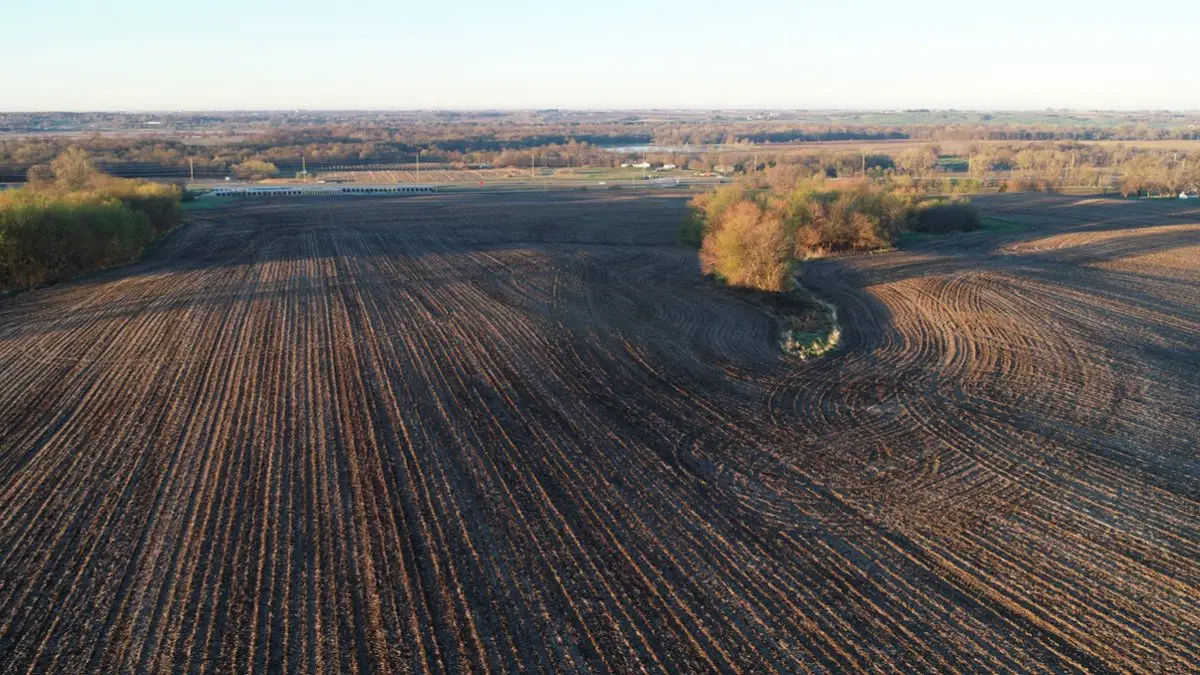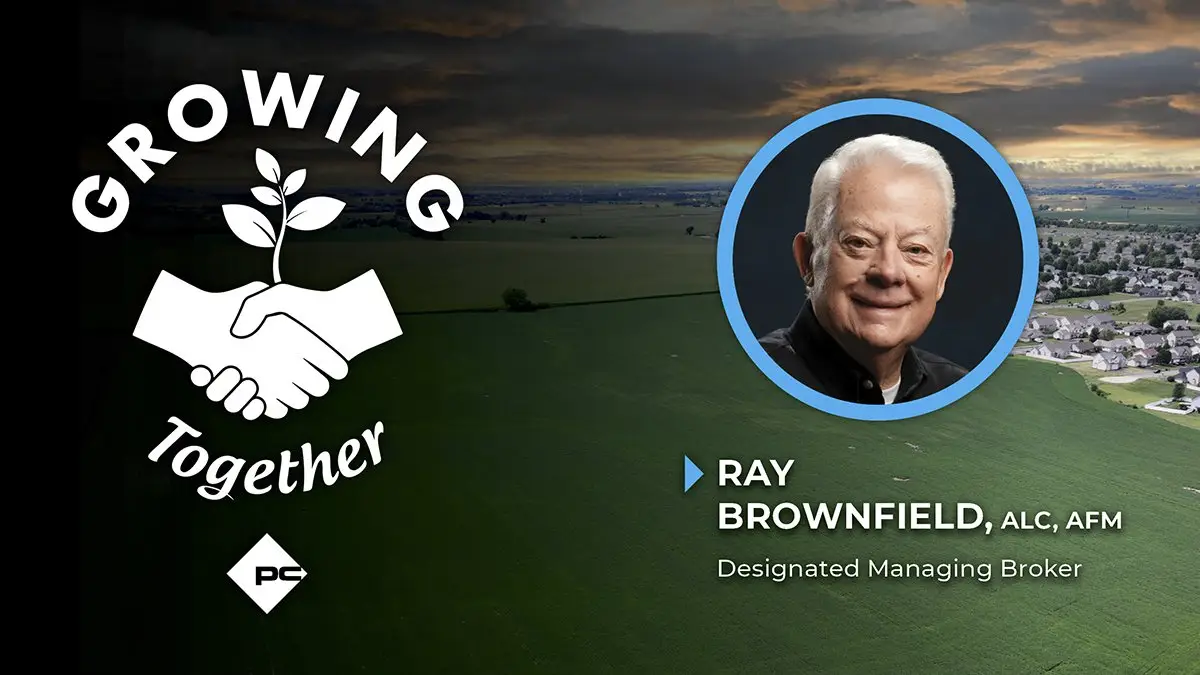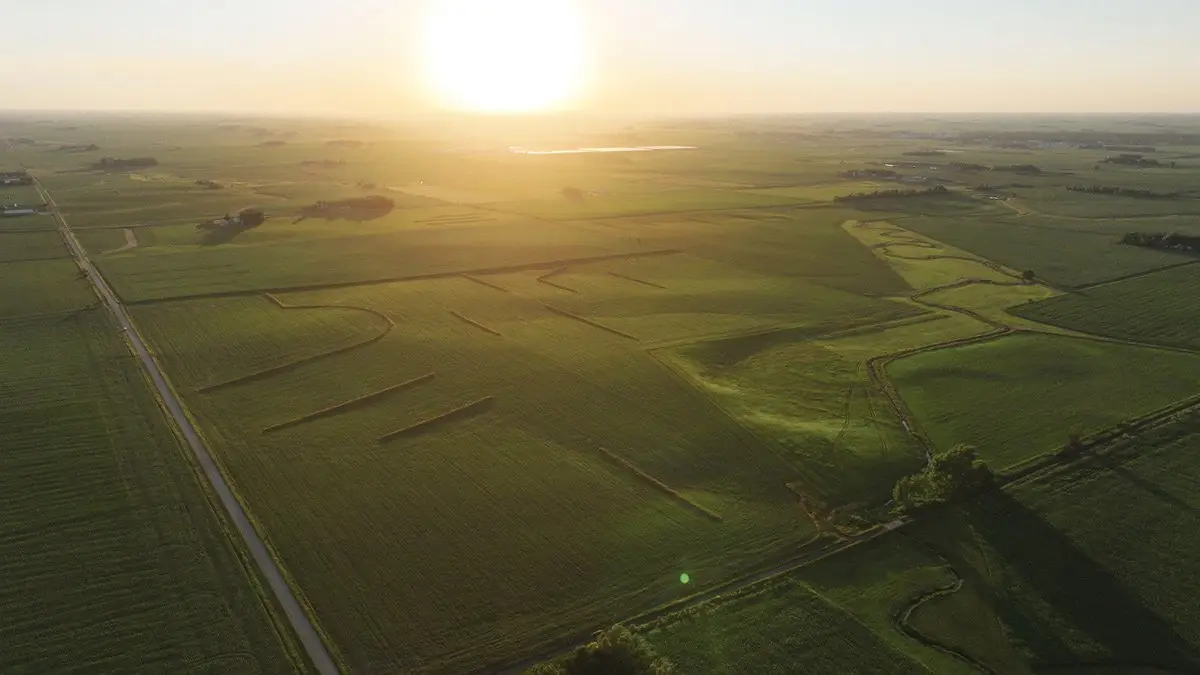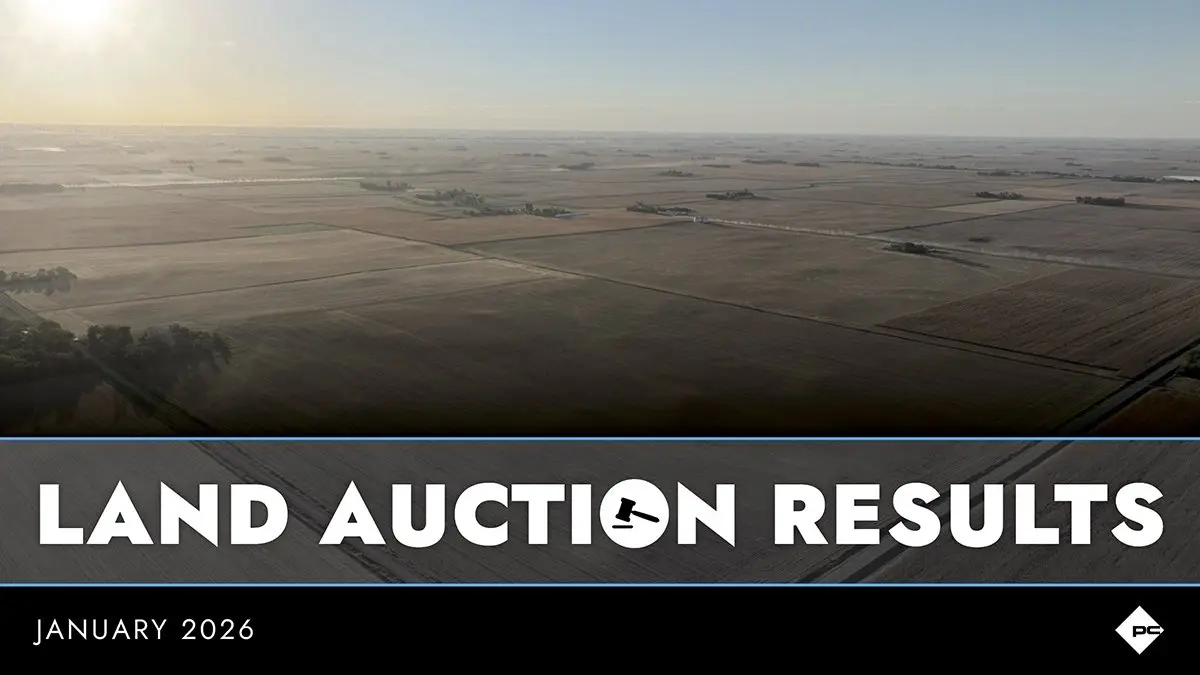Farmland Insider: Kansas Auction of 10,900 Acres Sells for $38 Million
It is hard to imagine the logistics of handling a land sale as big as the one Peoples Company and Lund Company managed on Thursday, February 18 in Liberal, Kansas. The numbers are staggering:
- 10,935.17 acres
- 41 tracts
- 14 buyers
- 91 bidders
- $38 million changing hands
- $3,464 per acre
“It definitely was a strong sale and exceeded expectations,” wrote Steve Bruere, owner of Peoples Company, in an email to Successful Farming.
The land – located in Seward and Stevens counties in southwest Kansas – featured a mix of center-pivot irrigated land, dryland, native grass, and land with improvements, including sheds, grain bins, and dwellings. Tract sizes ranged from 6.91 acres m/l to 1,085.87 acres, with 10,037.76 FSA cropland acres of which 1,609.45 acres m/l are enrolled in CRP with annual payments totaling over $48,000. Read More
Farmland LP Achieves Highest Corporate Sustainability Rating
Investors seeking competitive financial returns with positive environmental, social and governance (ESG) impacts are finding both in Farmland LP, the largest organic farmland fund manager in the U.S., which today announced it earned the highest corporate-sustainability rating awarded by HIP Investor Inc., a leading ESG and sustainability-ratings firm.
The 82.0 rating (of a possible 100) places Farmland LP as #1 in HIP Investor's worldwide corporate universe of 10,000 corporations, as well as at the top of the agricultural real estate investment trust (REIT) category, the closest comparable peer group. Read More
Farmers From Kansas to Alabama Have Never Dealt With Weather Like This
Brutal winter weather continued to batter the U.S. agriculture industry, as companies and farmers contended with snow, ice and cold temperatures that disrupted processing, snarled transport and killed livestock across the Midwest and South.
Winter storms are sowing challenges from Kansas to Alabama, state and industry officials said. Energy shortages forced meat-processing plants to temporarily close, while ice buildups kept grain barges off rivers and cattle ranchers struggled to save calves born onto frozen ground in the middle of the night.
The processing and transport disruptions, as well as the loss of animal life, are projected to cost agriculture companies and farmers millions of dollars. Farmers and state agriculture officials said it remained too early to tally all the costs. Read More
USDA Seeks Ways to ‘De-Risk’ Climate Mitigation, Says Bonnie
Farmers face significant expenses in adopting climate mitigation practices, and the Biden administration is pondering how to “de-risk those investments,” possibly through a so-called carbon bank, said USDA climate adviser Robert Bonnie on Thursday. “Can we look at some new authorities to create some new financing mechanisms?”
The concept of a carbon bank at the USDA has figured prominently in discussions about how the government could encourage farmers, ranchers, and foresters to slow global warming by sequestering carbon and other greenhouse gases in the soil and in trees. Bonnie, for example, in a white paper, advocated creating a carbon bank, drawing on USDA funding, to finance “climate-smart land management practices” by paying a guaranteed price per ton of carbon reductions. Read More







